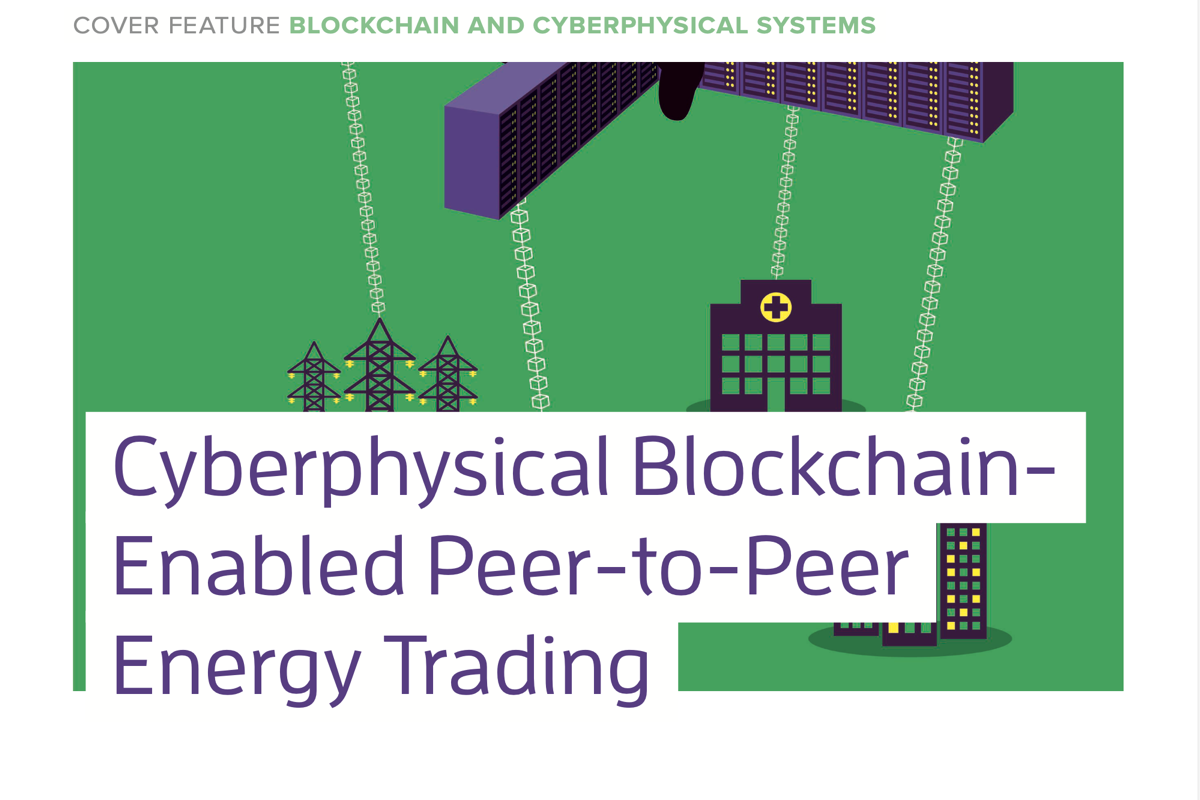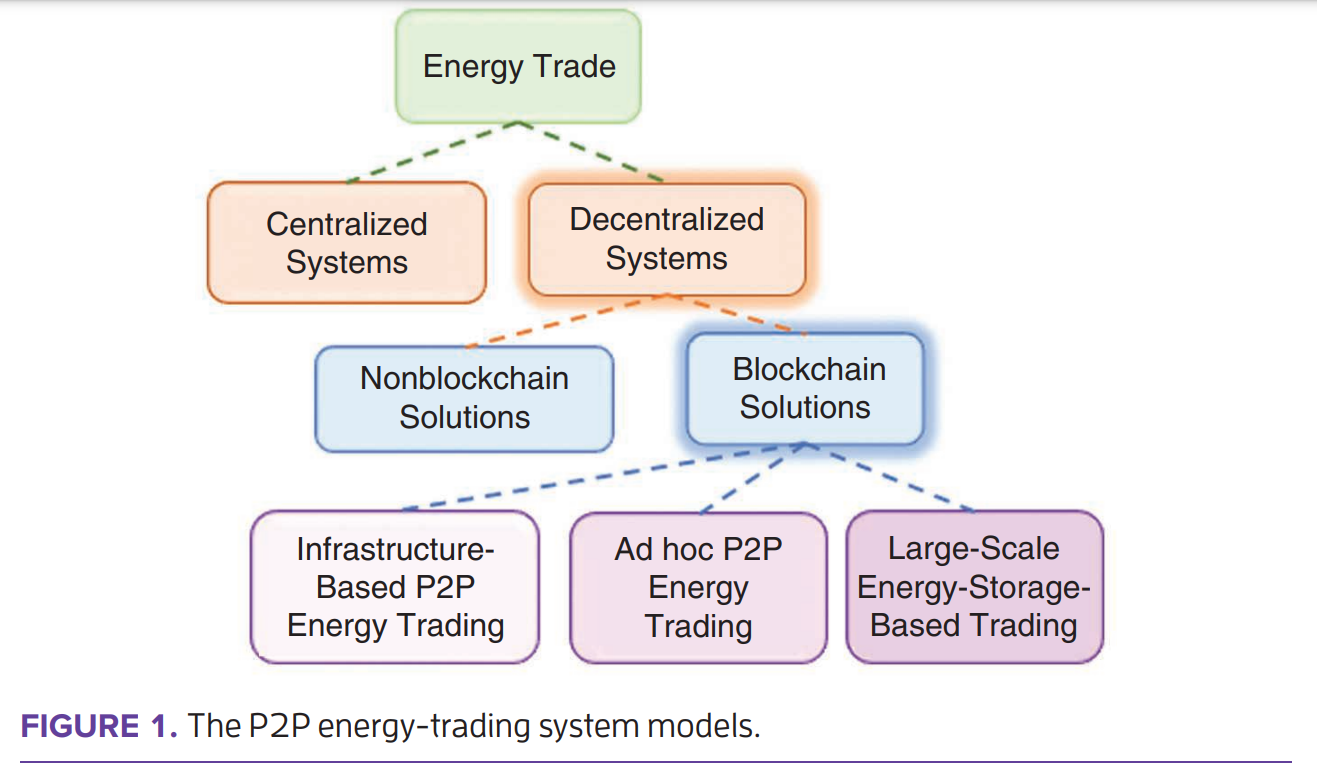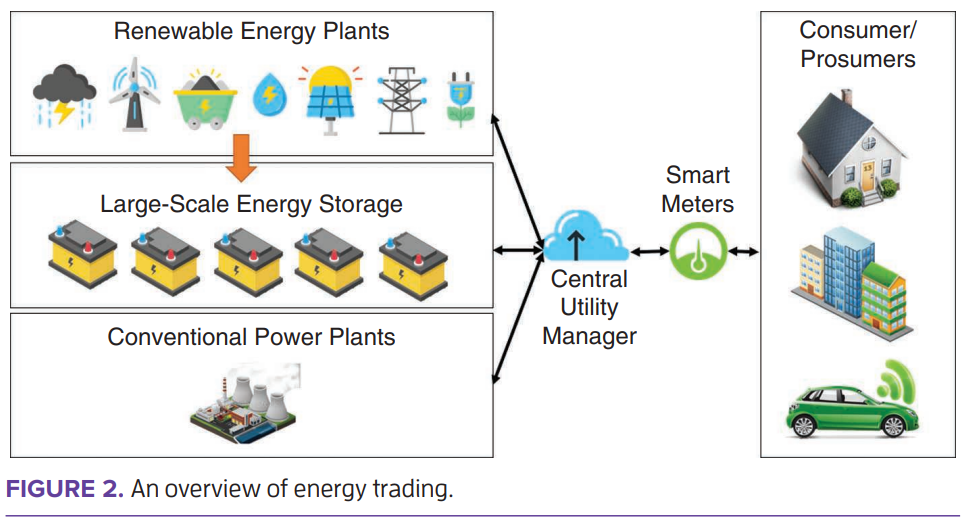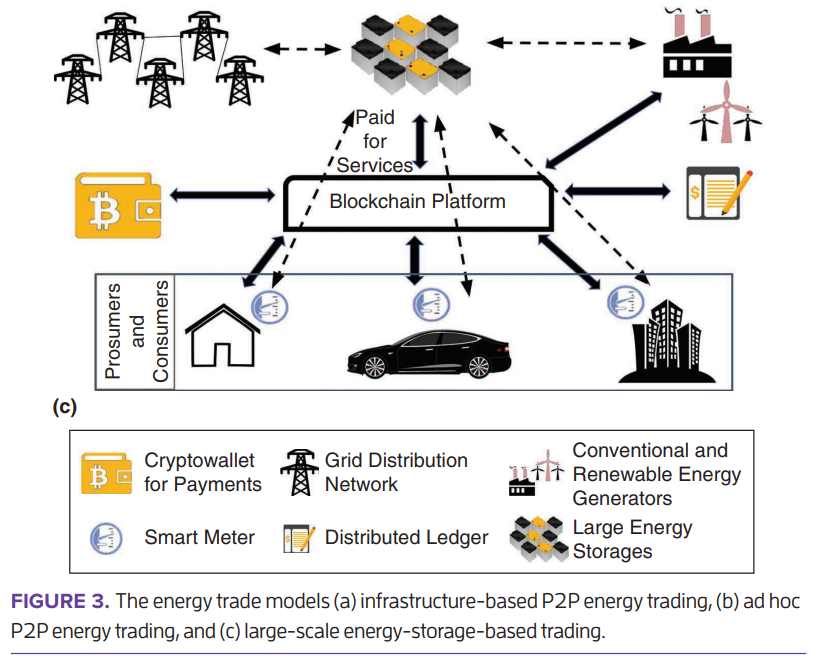Cyberphysical Blockchain-Enabled Peer-to-Peer Energy Trading
The global economy is experiencing a significant growth of businesses with increasing demands for energy. Global energy consumption increased by 2.1% in 2017, and, in 2019, the U.S. Energy Information Administration projected that expected growth in Asia by 2050 will be 50%. Since it is unlikely these demands will be met by conventional energy systems, the world is moving toward renewable energy systems (RESs) supported by cyberphysical technologies.
In addition, as climate changes increase the need for a reduced share of conventional resources, several nations are aiming at increasing their utilization of renewable energies. Owing to this, there has been an increase in the share of renewable energy as a percentage of the world’s total energy overall. The shift from conventional energy sources to renewables is clear, as revealed in 2019, when 40% of the U.K. gross electricity consumption was generated by RESs (according to a Green Match report).15 This transformation has led to the emergence of prosumers (producers and consumers) capable of generating in addition to consuming energy.
Many households and buildings are now equipped with solar panels that can contribute to overall energy needs. Power systems need to adapt to renewable energy so they can operate efficiently and sustainably and promote the concept of smart grids to support power systems
“Scalability and security problems with centralized architecture models in cyberphysical systems have provided opportunities for blockchain-based distributed models. A decentralized energy-trading system takes advantage of various sources and effectively coordinates the energy to ensure the optimal utilization of available resources. Three blockchainbased energy-trading models are proposed to overcome the technical challenges and market barriers as well as enhance the adoption of this disruptive technology."
Moayad Aloqaily










